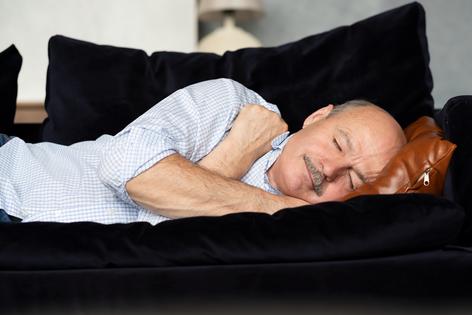Mayo Clinic Q&A: Is there a wrong way, or time, to nap?
Published in Health & Fitness
DEAR MAYO CLINIC: I am retired, and although I generally enjoy less hectic days now, I keep busy. Part of my routine includes trying to squeeze in a nap on most afternoons. My wife tells me that I'm doing it wrong because I often wake up groggy. Is there a wrong way — or time — to nap?
ANSWER: Closing your eyes for a few minutes during your busy day may seem like a good idea. It can refresh and recharge you. Is there a wrong way to nap? Only if the naps cause negative effects on other aspects of your life.
For your daily nap routine, it’s important to consider the time of day and length of time you nap, as these can provide benefits or create problems.
On the plus side, a nap can improve your mood, speed your reaction time, improve your memory, reduce fatigue and increase your alertness. A regular nap can make your afternoon more productive.
There are some potential drawbacks of napping every day. First is sleep inertia. It's the temporary grogginess and feeling disoriented after a nap. This can become a problem if you have places to be or tasks to complete after you wake up from your nap. Regular naps can interfere with your nighttime sleep routine, too, especially if your naps are too long or close to bedtime. If you experience insomnia or poor sleep quality at night, napping may worsen these problems. Short naps are the best when trying to avoid interference with nighttime sleep.
Follow these four tips to get the most out of your naps:
Before lying down to take a daily nap, you may want to think about why you began taking these naps. If you’ve been working the night shift or are a new parent, you probably have reason to be closing your eyes for a while. On the other hand, if you feel that a nap is essential to your daily functioning, you may have a bigger health problem that should be addressed with your health care team.
Talking to your health care team is the best way to find out why you're experiencing increased fatigue. The reasons for your exhaustion could be related to anything from having a sleep disorder such as sleep apnea to a side effect from a new medication. — Tiffany Casper, D.O., Family Medicine, Mayo Clinic Health System, Tomah, Wisconsin
(Mayo Clinic Q & A is an educational resource and doesn’t replace regular medical care. This Mayo Clinic Q&A represents inquiries this healthcare expert has received from patients. For more information, visit www.mayoclinic.org.)
©2024 Mayo Foundation for Medical Education and Research. All Rights Reserved. Distributed by Tribune Content Agency, LLC.










Comments